Michael J. Kramer's Blog, page 18
January 26, 2023
Gross Reiterative Impressionism of a Computer
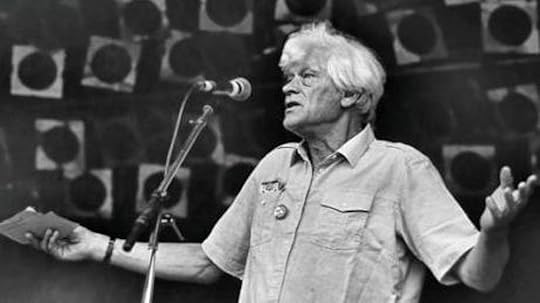
To boil down 20 instances to a line or two apiece must, after all, entail much selectivity and the suppression of much attendant evidence. The reader must still place his confidence in the historian who has decided that this feature only (and not all those others) of the evidence shall be singled out for remark: although he is not as much a victim as he is before the gross reiterative impressionism of a computer, which repeats one conformity ad nauseam while obliterating all evidence for which it has not been programmed.
— E.P. Thompson
January 8, 2023
American Will, American Intellect
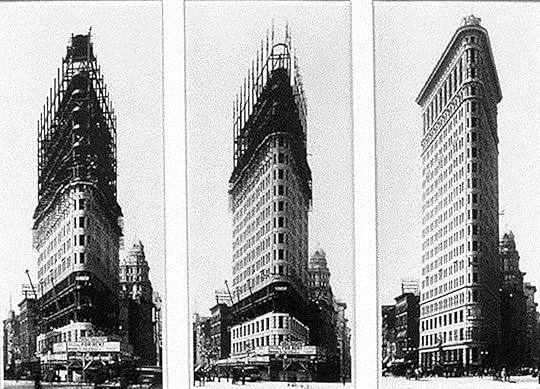
The American Will inhabits the sky-scraper; the American Intellect inhabits the colonial mansion.
— George Santayana
January 7, 2023
Stylish Analysis

Things made more sense, however, when we turned away from questions of representation to questions of style.
— Vikrant Dadawala, “Ethnic Studies,” The Point 28, 18 October 2022
December 31, 2022
Rovings
 The Clean.SoundsThe Clean, “Anything Can Happen,” Anthology (RIP Hamish Kilgour)Hazel and Alice, Won’t You Come and Sing For Me?Hazel and Alice, Who’s That Knocking?Sam Bush, Radio John: The Songs of John HartfordJohn Hartford, Radio JohnMiles Davis, Blue HazeUnidentified performer, “an-Nar (The Hellfire),” recorded by Alan Lomax in Fez, Morocco, 1967Roge, New Sounds, 12 December 2022Dorival Caymmi, The Essential Dorival Cayman
Portuguese Nuggets/Wild 60s Sounds
Alan Feinberg, piano; Robert Cohen, cello; New World Symphony Orchestra/Michael Tilson Thomas, Morton Feldman: Coptic LightEnsemble Recherche, Feldman: Routine InvestigationMichael G. Morgan, Morton Feldman: Durations I-V; Coptic LightAki Takahashi, Plays Morton Feldman, Vol.1Megumi Hashiramoto, Aki Takahashi, Cage: Four WallsYuko Fujiyama, Graham Haynes & Ikue Mori, Quiet PassionFred Frith & Ikue Mori, A Mountain Doesn’t Know It’s TallMali Obomsawin, Sweet ToothRichard and Linda Thompson, Hard Luck StoriesAkropolis Reed Quintet, Hymns for Private Use-Bright Shiny ThingsTimothy Norton, Visions of PhaedrusVictoria Wolcott interviewed by Claire Potter, Why Now? Podcast, 10 November 2022Return to North: Soundscapes of Glenn Gould, Ideas, CBC RadioMatthew Sitman and Sam Adler-Bell, “On Barbara Ehrenreich, with Alex Press and Gabriel Winant,” Know Your Enemy Podcast, Dissent, 12 September 2022Moses Asch and Folkways Records Parts 1 and 2, American Songcatcher Podcast, hosted by Nicholas Edward WilliamsWordsDivorced Guy Building Twitter threadPaul Robeson’s FreedomElizabeth Borgwardt, Christopher McKnight Nichols, and Andrew Preston, eds., Rethinking American Grand StrategyChristopher McKnight Nichols and David Milne, eds., Ideology in U.S. Foreign Relations: New HistoriesJessica C. E. Gienow-Hecht, Sound Diplomacy: Music and Emotions in Transatlantic Relations, 1850-1920Kevin Kruse and Julian Zelizer, Fault Lines: A History of the United States since 1974Sheldon Wolin, Democracy Incorporated: Managed Democracy and the Specter of Inverted TotalitarianismRichard R. John and Kim Phillips-Fein, eds., Capital Gains: Business and Politics in Twentieth-Century AmericaWilliam Parker, Conversations I, II, IIIJess McAllen, “The Sick Proletariat: Health Communism calls for a return to radical patient organizing,” The Baffler, December 5, 2022Vikrant Dadawala, “Ethnic Studies,” The Point 28, 18 October 2022Thomas C. Lassman, “Putting the Military Back into the History of the Military-Industrial Complex: The Management of Technological Innovation in the U.S. Army, 1945–1960,” Isis 106, 1 (2015): 94–120 Jed Perl, “Between Abstraction and Representation,” New York Review of Books, 24 November 2022Emily Johnson and River Whittle, “In Conversation: What the Land Teaches,” Critical Correspondence, 29 November 2022Arlene Gottfried, Sometimes OverwhelmingNancy Ireson and Zoé Whitley, eds., Elijah Pierce’s America“Walls”Susan Meiselas, Mediations @ SF MoMAMark Reynolds, Saturday Morning Kid Cartoons @ Stuff By MarkAfro-Atlantic Histories @ LACMA Marwa Abdul-Rahman, The World @ The Box LA“Stages”Nora Guthrie in Conversation with Peter Glazer @ Abraham Lincoln Brigade Archives Susman Lecture Series, 5 December 2022The Friendly Brothers “Where Shall I Be When the First Trumpet Sounds,” filmed by Alan Lomax, 1978The Band, “Acadian Driftwood” @ The Last Waltz concert, 1976Midsummer Night’s Dream, Open Road Theater @ MUCCC, 17 December 2022The Seagull, National Theater of England Live Broadcast @ Little Theater, 18 December 2022Liof Munimula, Live @ Willy Street Fest, Madison, WI, 1990Bob Dylan “I’ve Made Up My Mind to Give Myself to You” @ Auditorium Theater, Chicago, 03 November 2021Screens
Heart Valley
The Cat’s MeowFleishman Is In TroubleThe White Lotus, Season 01, 02Echo 3Slow Horses, Season 02Ipcress Files, Season 01
An Animated Interview with Bluegrass Pioneer Alice Gerrard Smithsonian Folkways
The Clean.SoundsThe Clean, “Anything Can Happen,” Anthology (RIP Hamish Kilgour)Hazel and Alice, Won’t You Come and Sing For Me?Hazel and Alice, Who’s That Knocking?Sam Bush, Radio John: The Songs of John HartfordJohn Hartford, Radio JohnMiles Davis, Blue HazeUnidentified performer, “an-Nar (The Hellfire),” recorded by Alan Lomax in Fez, Morocco, 1967Roge, New Sounds, 12 December 2022Dorival Caymmi, The Essential Dorival Cayman
Portuguese Nuggets/Wild 60s Sounds
Alan Feinberg, piano; Robert Cohen, cello; New World Symphony Orchestra/Michael Tilson Thomas, Morton Feldman: Coptic LightEnsemble Recherche, Feldman: Routine InvestigationMichael G. Morgan, Morton Feldman: Durations I-V; Coptic LightAki Takahashi, Plays Morton Feldman, Vol.1Megumi Hashiramoto, Aki Takahashi, Cage: Four WallsYuko Fujiyama, Graham Haynes & Ikue Mori, Quiet PassionFred Frith & Ikue Mori, A Mountain Doesn’t Know It’s TallMali Obomsawin, Sweet ToothRichard and Linda Thompson, Hard Luck StoriesAkropolis Reed Quintet, Hymns for Private Use-Bright Shiny ThingsTimothy Norton, Visions of PhaedrusVictoria Wolcott interviewed by Claire Potter, Why Now? Podcast, 10 November 2022Return to North: Soundscapes of Glenn Gould, Ideas, CBC RadioMatthew Sitman and Sam Adler-Bell, “On Barbara Ehrenreich, with Alex Press and Gabriel Winant,” Know Your Enemy Podcast, Dissent, 12 September 2022Moses Asch and Folkways Records Parts 1 and 2, American Songcatcher Podcast, hosted by Nicholas Edward WilliamsWordsDivorced Guy Building Twitter threadPaul Robeson’s FreedomElizabeth Borgwardt, Christopher McKnight Nichols, and Andrew Preston, eds., Rethinking American Grand StrategyChristopher McKnight Nichols and David Milne, eds., Ideology in U.S. Foreign Relations: New HistoriesJessica C. E. Gienow-Hecht, Sound Diplomacy: Music and Emotions in Transatlantic Relations, 1850-1920Kevin Kruse and Julian Zelizer, Fault Lines: A History of the United States since 1974Sheldon Wolin, Democracy Incorporated: Managed Democracy and the Specter of Inverted TotalitarianismRichard R. John and Kim Phillips-Fein, eds., Capital Gains: Business and Politics in Twentieth-Century AmericaWilliam Parker, Conversations I, II, IIIJess McAllen, “The Sick Proletariat: Health Communism calls for a return to radical patient organizing,” The Baffler, December 5, 2022Vikrant Dadawala, “Ethnic Studies,” The Point 28, 18 October 2022Thomas C. Lassman, “Putting the Military Back into the History of the Military-Industrial Complex: The Management of Technological Innovation in the U.S. Army, 1945–1960,” Isis 106, 1 (2015): 94–120 Jed Perl, “Between Abstraction and Representation,” New York Review of Books, 24 November 2022Emily Johnson and River Whittle, “In Conversation: What the Land Teaches,” Critical Correspondence, 29 November 2022Arlene Gottfried, Sometimes OverwhelmingNancy Ireson and Zoé Whitley, eds., Elijah Pierce’s America“Walls”Susan Meiselas, Mediations @ SF MoMAMark Reynolds, Saturday Morning Kid Cartoons @ Stuff By MarkAfro-Atlantic Histories @ LACMA Marwa Abdul-Rahman, The World @ The Box LA“Stages”Nora Guthrie in Conversation with Peter Glazer @ Abraham Lincoln Brigade Archives Susman Lecture Series, 5 December 2022The Friendly Brothers “Where Shall I Be When the First Trumpet Sounds,” filmed by Alan Lomax, 1978The Band, “Acadian Driftwood” @ The Last Waltz concert, 1976Midsummer Night’s Dream, Open Road Theater @ MUCCC, 17 December 2022The Seagull, National Theater of England Live Broadcast @ Little Theater, 18 December 2022Liof Munimula, Live @ Willy Street Fest, Madison, WI, 1990Bob Dylan “I’ve Made Up My Mind to Give Myself to You” @ Auditorium Theater, Chicago, 03 November 2021Screens
Heart Valley
The Cat’s MeowFleishman Is In TroubleThe White Lotus, Season 01, 02Echo 3Slow Horses, Season 02Ipcress Files, Season 01
An Animated Interview with Bluegrass Pioneer Alice Gerrard Smithsonian Folkways
December 27, 2022
Remembrance of Covids Past
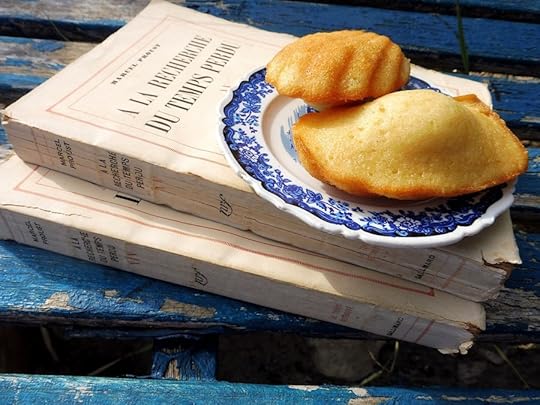
Infamously, when Marcel Proust tasted a madeleine dipped in lemon-blossom tea, it caused him to experience intense memories of his youth. The Proustian madeleine is now famous as a symbol of how taste and smell can spark the return of repressed or forgotten experiences. But what about when someone loses their sense of taste and smell? What then?
One year ago, as the delta wave of Covid-19 shifted into omicron, I finally caught the virus. Fortunately, my symptoms were fairly mild thanks to vaccination, however I did lose my sense of taste and smell for a few days. This was at once terrifying and fascinating, a kind of psychedelic trip of defamiliarization, a sort of unintended systematic derangement of the senses à la Proust’s almost-contemporary (but quite a different character), Arthur Rimbaud.
Losing one’s sense of taste and smell was a bit like eating a minimalist painting. You know there is a flavor and odor to the food from memory, just as you know that a totally white canvas inside a frame is intended to be a painting, but that’s all you have. The abstract idea remained while the material reality disappeared. The sensory reality was nothing, the imaginary projection became all. Here was Proust’s madeleine, but in reverse! In place of a taste and smell sparking a memory, now all I possessed was the memory of taste and smell.
As Covid-19 itself partially dissipates yet still lingers, we find ourselves in a strange historical moment that dangles between the misty past and the still-circulating present. Might the experience of what we might call Covid-19’s anti-madeleine serve as a kind of metaphor for the larger cultural experience of the era? A time of emptiness, of trauma, of shutdown, of loss, the Covid-19 pandemic currently exists as a kind of void, a blank slate, a memory gap, a hole in time. It wears a mask. We know that awful things happened—suffering, death, depression, despair—but we can’t quite recognize what they meant yet as history. Fragments are everywhere like phantoms haunting us, yet the semantic whole remains missing. We plant flags for the dead, but all they do is flicker in the wind. There is memory, but no taste or smell to it.
For a period when sensations themselves became but memories, what will it mean to establish connections back to its sensations? What was this lived experience of the world dying? What historical or memorial seance will make contact with a history of when we went contactless?
December 24, 2022
Gen X Is In Trouble
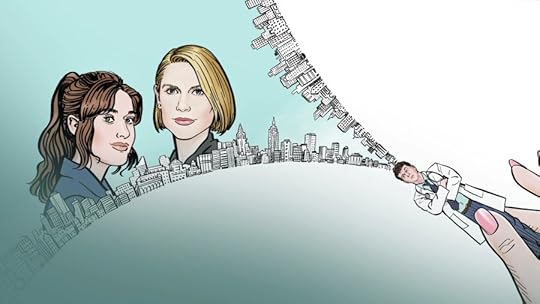
Television shows are always part of a larger show called the televisual world. This world has many countries: UK Detectiveland, US Urban Policeville, Greater Suburbia, International Spynesia, Hunky Cowville. New York City itself is a very special kind of televisual Balkans, with many different -stans (and “stans”). You’ve got Downtown Bohemiastan, Upper West Sideistan, Brooklynistan, Bronxistan, Bridge-and-Tunnelstan, Archie Bunkerstan, and the Guy from High Maintenance biking around delivery weed to everyone.
When I watched the first few episodes of Taffy Brodesser-Akner‘s Fleishman Is in Trouble television adaptation of her 2019 novel, it appeared to be a variation on Sex in the City. You know, an anthropological examination of the exotic erotic lives of the Upper East Side, with antecedents found everywhere from Woody Allen films to Edith Wharton novels. Here was a world of elite competition and misery, with a bit of a Jewish tinge but still squarely WASPY in its core elite class and cultural essence.
As the season has unfolded, however, and we increasingly pivot from divorced husband Dr. Toby Fleishman’s perspective, portrayed with typical flummoxed quizicality by Jesse Eisenberg, to the female perspectives of his ex-wife Rachel (Claire Danes) and friend/show narrator Libby Epstein (Lizzy Caplan), the show strikes me as a fundamental kind of Gen X tale. This was not the world of Girls, with its droll millennial absurdities and expectations, but something older, something at once more skeptical yet hopeful, more jaded yet barely covering—like some tattered flannel shirt dangling from the waist—a kind of intense idealism. There is fierce belief in something more to life here undercut by a sour sense of “that’s it?”
The casting of Danes and especially Caplan is the Gen X tell. Caplan links Fleishman Is in Trouble directly back to the show Freaks and Geeks, as if we were witnessing the continued stories of those characters, who have now reached indie-rock-reunion-tour midlife crises filled with clove-cigarette-smoke nostalgia for a kind of youthful anti-nostalgia. Danes is a bit younger than the tail-end of Gen X, but My So-Called Life fits the bill too as part of this tele-generational world.
Fleishman Is in Trouble is, of course, its own brilliant creation. Nonetheless, it links to a larger screen-world whose tones are decidedly grungy, whose ambitions for adult achievement continually turn back to a longing for a slacker’s paradise, and whose portrayals of class entitlement reveal that happiness for anyone who is now in their 40s and 50s, even the filthy rich ones, should be swallowed with a jagged little pill.
Rockumentrarianism
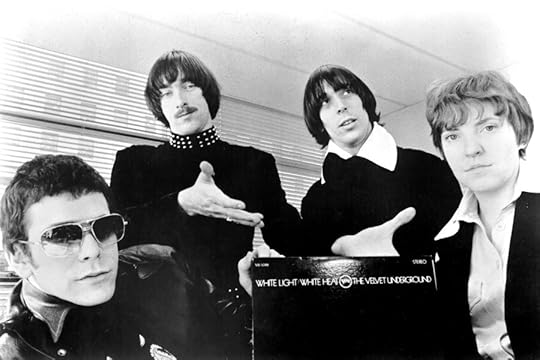
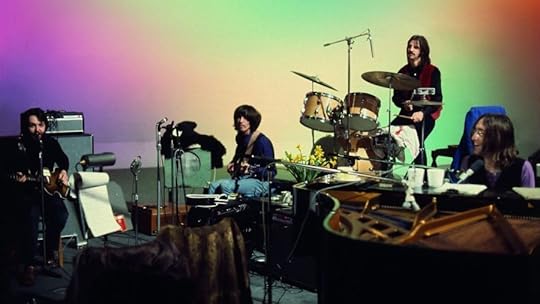
A quick comparison from a longer essay I’ve been working on about the 1960s and documentary films:
Todd Haynes’ The Velvet Underground documentary film tries to make the band into the Beatles, while Peter Jackson’s Fab Four documentary Get Back makes the Beatles into a durational Warholian VU experience.
November 30, 2022
Rovings
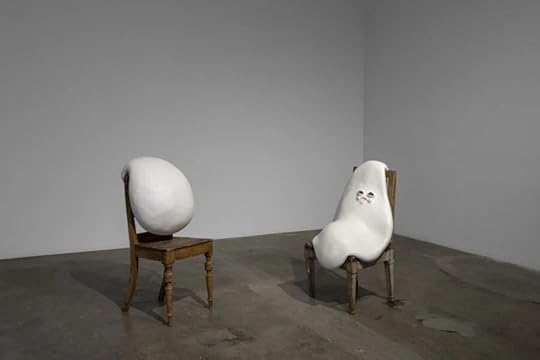 Nathalie Djurberg and Hans Berg, A Pancake Moon.SoundsYvon Mimeault, Y’était temps!Karen Dalton, In My Own TimeRichard and Linda Thompson, “I Want to See the Bright Lights Tonight”Kirk Knuffke and Jesse Stacke, SatieKarl Berger and Kirk Knuffke featuring Jay Anderson and Matt Wilson, Heart is a Melody of TimeVarious Artists, Excavated Shellac: An Alternative History of the World’s Music, 1907-1967 Quruli, Saishu Ressya (Last Train)The Last Archive, Season 03: Solutions“Worldmaking after Empire with Adom Getachew,” The DigThe Big LieWordsAlain Locke, The Works of Alain Locke, ed. Charles MolesworthJohn Warner, Why They Can’t Write: Killing the Five-Paragraph Essay and Other NecessitiesDavid J. Hoeveler, Jr., The Postmodernist Turn: American Thought and Culture in the 1970sGlenda Gilmore, Romare Bearden in the Homeland of His Imagination: An Artist’s Reckoning with the SouthSimone Browne, Dark Matters: On the Surveillance of BlacknessAndré Brock, Jr., Distributed Blackness: African American CyberculturesRuha Benjamin, Race After Technology: Abolitionist Tools for the New Jim CodeClaire Potter, “Tenured Faculty, We Are the 18%,” Political Junkie, 15 November 2022 Beverly Gage, “To Understand the F.B.I., You Have to Understand J. Edgar Hoover,” New York Times, 23 November 2022Melissa McCarthy, The Music of the Waters: A Collection of Sea Shanties (1888), Public Domain Review, 19 January 2021Amy Swerdlow, Women Strike for Peace : Traditional Motherhood and Radical Politics in the 1960sJohn H. Hale, The Freedom Schools : Student Activists in the Mississippi Civil Rights MovementIthiel de Sola Pool, Politics in Wired Nations: Selected WritingsIthiel de Sola Pool, Technologies without Boundaries : On Telecommunications in a Global AgeEd Finn, What Algorithms Want: Imagination in the Age of ComputingKevin Driscoll, The Modem World: A Prehistory of Social MediaHans-Peter Wipplinger, ed. Ernesto NetoCliff Lauson, ed. Ernesto Neto: The Edges of the World“Walls”Anastasia Samoylova, FloodZone @ Eastman MuseumTakuto Ohta, rubbish thingsNathalie Djurberg & Hans Berg, A Pancake Moon @ Tanya Banakdar Gallery, Los AngelesMary Mattingly, House and Universe, 2013Maria Lassnig, The Paris Years, 1960–68 @ Petzel GalleryMark Tansey, Recent Paintings and Graphite Drawings @ Gagosian NYCSalman ToorLisa Williamson, A Landscape and a Hum @ Tanya Bonakdar Gallery, New YorkDiego Rivera’s America @ SFMoMAWilliam Eggleston, The Outlands @ David Zwirner Gallery“Stages”Gal Costa, “Da maior importância,” 1970Pedro A. Regalado, “The Bodega: Place, Urban Redevelopment, and Political Power in Postwar New York with Historian” @ New York State Museum, 20 October 2022“Ideology in U.S. Foreign Relations: New Histories” @ Washington History Seminar, 14 November 2022 The Unknown Kerouac @ Library of American Live, 14 November 2022 Sun Ra Arkestra @ Theaterhaus-Jazztage, Stuttgart, April 1990Ravi Mangla, Propaganda in the Archive @ Visual Studies Workshop, 17 November 2022Mr. B: George Balanchine’s 20th Century, Jennifer Homans in Conversation with Pamela Newkirk @ CUNY Graduate Center, 29 November 2022Gayle Wald with Gus Stadler—This Is Rhythm: Ella Jenkins’ Life in Music @ Popular Music Books in Progress Series, 29 November 2022
Nathalie Djurberg and Hans Berg, A Pancake Moon.SoundsYvon Mimeault, Y’était temps!Karen Dalton, In My Own TimeRichard and Linda Thompson, “I Want to See the Bright Lights Tonight”Kirk Knuffke and Jesse Stacke, SatieKarl Berger and Kirk Knuffke featuring Jay Anderson and Matt Wilson, Heart is a Melody of TimeVarious Artists, Excavated Shellac: An Alternative History of the World’s Music, 1907-1967 Quruli, Saishu Ressya (Last Train)The Last Archive, Season 03: Solutions“Worldmaking after Empire with Adom Getachew,” The DigThe Big LieWordsAlain Locke, The Works of Alain Locke, ed. Charles MolesworthJohn Warner, Why They Can’t Write: Killing the Five-Paragraph Essay and Other NecessitiesDavid J. Hoeveler, Jr., The Postmodernist Turn: American Thought and Culture in the 1970sGlenda Gilmore, Romare Bearden in the Homeland of His Imagination: An Artist’s Reckoning with the SouthSimone Browne, Dark Matters: On the Surveillance of BlacknessAndré Brock, Jr., Distributed Blackness: African American CyberculturesRuha Benjamin, Race After Technology: Abolitionist Tools for the New Jim CodeClaire Potter, “Tenured Faculty, We Are the 18%,” Political Junkie, 15 November 2022 Beverly Gage, “To Understand the F.B.I., You Have to Understand J. Edgar Hoover,” New York Times, 23 November 2022Melissa McCarthy, The Music of the Waters: A Collection of Sea Shanties (1888), Public Domain Review, 19 January 2021Amy Swerdlow, Women Strike for Peace : Traditional Motherhood and Radical Politics in the 1960sJohn H. Hale, The Freedom Schools : Student Activists in the Mississippi Civil Rights MovementIthiel de Sola Pool, Politics in Wired Nations: Selected WritingsIthiel de Sola Pool, Technologies without Boundaries : On Telecommunications in a Global AgeEd Finn, What Algorithms Want: Imagination in the Age of ComputingKevin Driscoll, The Modem World: A Prehistory of Social MediaHans-Peter Wipplinger, ed. Ernesto NetoCliff Lauson, ed. Ernesto Neto: The Edges of the World“Walls”Anastasia Samoylova, FloodZone @ Eastman MuseumTakuto Ohta, rubbish thingsNathalie Djurberg & Hans Berg, A Pancake Moon @ Tanya Banakdar Gallery, Los AngelesMary Mattingly, House and Universe, 2013Maria Lassnig, The Paris Years, 1960–68 @ Petzel GalleryMark Tansey, Recent Paintings and Graphite Drawings @ Gagosian NYCSalman ToorLisa Williamson, A Landscape and a Hum @ Tanya Bonakdar Gallery, New YorkDiego Rivera’s America @ SFMoMAWilliam Eggleston, The Outlands @ David Zwirner Gallery“Stages”Gal Costa, “Da maior importância,” 1970Pedro A. Regalado, “The Bodega: Place, Urban Redevelopment, and Political Power in Postwar New York with Historian” @ New York State Museum, 20 October 2022“Ideology in U.S. Foreign Relations: New Histories” @ Washington History Seminar, 14 November 2022 The Unknown Kerouac @ Library of American Live, 14 November 2022 Sun Ra Arkestra @ Theaterhaus-Jazztage, Stuttgart, April 1990Ravi Mangla, Propaganda in the Archive @ Visual Studies Workshop, 17 November 2022Mr. B: George Balanchine’s 20th Century, Jennifer Homans in Conversation with Pamela Newkirk @ CUNY Graduate Center, 29 November 2022Gayle Wald with Gus Stadler—This Is Rhythm: Ella Jenkins’ Life in Music @ Popular Music Books in Progress Series, 29 November 2022ScreensI WishShantaram Season 01Defense of the RealmBlacklightShaq, Episodes 01 and 02Ben Franklin, dir. Ken BurnsFour Adventures Of Reinette and MirabelleThanksgiving Day Parade mishaps, Psychotronica Twitter feed
November 27, 2022
Sour Grapes

But no thing can be its own symbol. Painted grapes are no symbol of real grapes, they are imaginary grapes.




